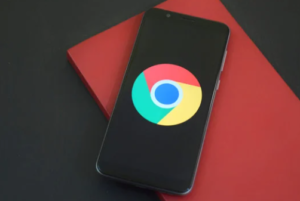
Technology
Even Fonts Can Be Used To Track You Online – What Can You Do About It?
Table of Contents
Google spying on you is nothing new. We’re using their search engine and other services for free, and they’re pointing a billion-dollar computer at our brain, trying to get us to click on an ad. It seems like a fair deal, right?
With ChatGPT starting to dethrone Google as the search giant, we’ll get tracked in ways no one knew existed. Instead of using cookies to follow what we’re doing online, Google uses fonts. Yes, fonts. Then, they sell the data they receive to advertisers. We live in a wild world where even the most tech-savvy people didn’t figure this out sooner.
How can you track somebody through a font?

Web designers love using fonts such as Merriweather, Montserrat, Open Sans, Roboto, and Lato. Almost every website you see uses them, and there’s a seamless integration between PC, mobile, and tablet devices. They’re free fonts that Google gives out, but when the file for it gets downloaded, something extra comes along – a tracker.
The tracker starts by collecting your IP address, the websites you visit, how much time you spend on them, and what you click on. Combining data from how you browse the web creates a digital footprint. The Social Dilemma is an excellent documentary covering how companies like Meta and TikTok skew the world and collect information. But Google and Facebook are giants of their own kind.
Google claims the free tracking fonts make it easier for devices to load business websites. Of course, it does, but it comes at the cost of privacy. Oh, and using Incognito mode doesn’t make a difference in this scenario.
Using a VPN, on the other hand, is a great defense wall because you can change your cookie settings, and Google won’t track everything you do. But these fonts are everywhere, and you’ll have to delete your personal history after every browsing session if you don’t want to be monitored.
Enabling a tracker blocker is another way to go against the system. Add an antivirus or a VPN service into the mixt that can scan file for viruses, and you’ve got the full suite of protection from hackers and cybercriminals. But that doesn’t mean you’ll be safe from tech giants who are after your data.
Unfortunately, becoming anonymous online just became a lot harder.
What does Google know about you?

The fun part about using Google is that its algorithm learns something new about you whenever you search for a query. Every question you ask adds a building block to the multifaceted profile they’ve created about you. It conglomerates information from searches and your YouTube history. Anytime an advertiser wants to target a group similar to you, they serve you with an ad.
You can see the profile Google created about you on the Settings page. You’ll be surprised to see how accurate it really is. Some predictions might not be correct, but it’s always learning. Eventually, it will hone in on your likes and show you precisely what you want to see all the time without missing a beat.
When you open the Settings Page, here’s an option related to Data and Privacy. Scroll down until you get to the part about Personalized Ads, click on your Ad Center, and prepare for a surprise.
You’ll see information about your gender, age, and the languages you know. Below these basic demographics is info about your relationship, education, the industry you’re working in, your employer size, homeownership status, and whether you’re a parent.
Fortunately, you can turn off every individual option or all of them together. That way, you won’t receive personalized ads; supposedly, the tech giant won’t keep an eye on you. Even though every account doesn’t come with this option turned off automatically, at least they’re giving us an option.
How to become (close to) anonymous online?

Having a bit of privacy in the digital world seems like a large ask. Governments, marketers, and hackers will ask about what you’re trying to hide. It’s about protecting yourself, having autonomy, or simple political liberty.
Since everything’s tracked, becoming anonymous online is close to impossible. But you can make small changes that yield great results. Instead of using WhatsApp, Messenger, or Viber, switch to Signal. It’s a messaging app that actually encrypts your data and doesn’t send it to the NSA.
Combine Signal with Tor, and you’ve got a blend that no one wants to mess with. Make it your main browser, always use it on mobile, and don’t worry about the dark web too much.
Finally, be careful about posting online. Being private online while posting details about your personal life is like going to war because of peace. It doesn’t make any sense. Older generations rarely post anything, while Gen Z can’t live without sharing every thought inside their head. A single post now and then is normal. But overdoing it creates an image that companies, and bad actors, can be used for hostile purposes.











